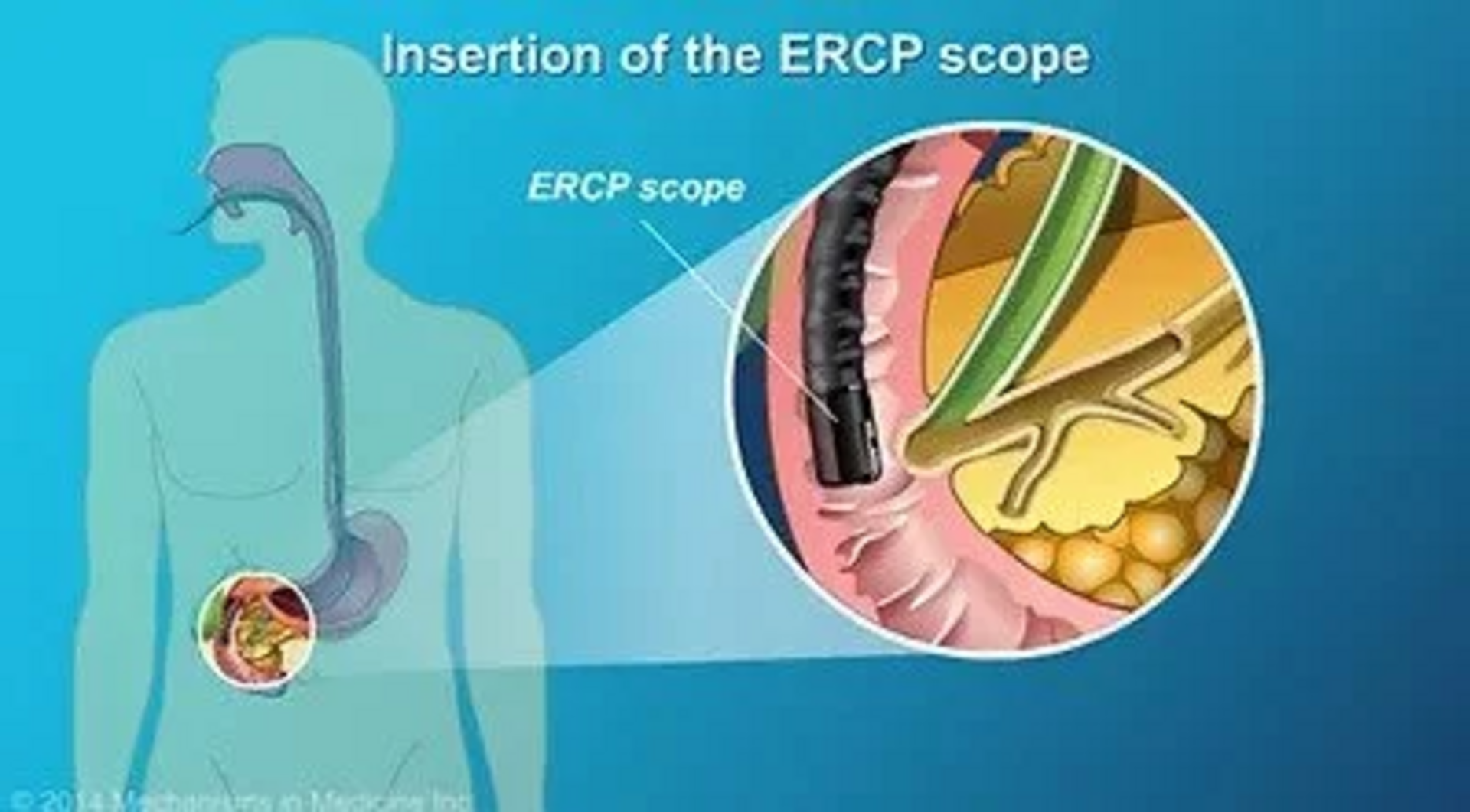At RL Gastrocare, led by Dr. Rupesh Lunkad, amongst the leading Gastroenterologist and Liver Specialist in Swargate Pune, we specialize in advanced procedures like ERCP (Endoscopic Retrograde Cholangiopancreatography) to diagnose and treat conditions affecting the pancreatic and bile ducts.

What is ERCP?
ERCP is a cutting-edge procedure that combines endoscopy and X-ray imaging to examine the pancreatic and bile ducts. A flexible, lighted tube (endoscope), about the size of your index finger, is carefully guided through the mouth, stomach, and into the duodenum (the first part of the small intestine). A small plastic tube (cannula) is passed through the endoscope into the ampulla (a small opening in the duodenum), where a special dye is injected to capture detailed X-ray images of the ducts.
Why is ERCP Performed?
ERCP is both a diagnostic and therapeutic tool, commonly used to:
- Diagnose conditions of the pancreas and bile ducts, including abdominal pain, jaundice, weight loss, or abnormalities detected on imaging tests like ultrasound or CT scans.
- Treat conditions, such as:
- Gallstones: Diagnosed and removed.
- Bile duct obstructions: Treated with stents or bypass tubes.
- Tumors: Cancerous or noncancerous, diagnosed and managed.
- Pancreatic stones: Occasionally removed through ERCP.
- Support gallbladder surgeries: ERCP may be performed before or after surgery to aid the operation or manage complications.
Preparing for ERCP
To ensure the success and safety of your procedure:
- Fasting: Do not eat or drink anything for at least 8 hours before the procedure.
- Medication: Inform your doctor about all medications you’re taking, including:
- Aspirin, Vitamin E, or non-steroidal anti-inflammatory drugs.
- Blood thinners or insulin.
- Allergies: Notify your doctor about any allergies to iodine, shellfish, or medications.
- Antibiotics: If you require antibiotics for dental procedures, you may need them for ERCP as well. Discuss this with your doctor in advance.
What Happens During ERCP?
-
Preparation:
- A local anesthetic spray numbs your throat to prevent gagging.
- Medications are administered intravenously to help you relax.
-
Procedure:
- You’ll lie comfortably on an X-ray table while the endoscope is gently guided through your mouth into the duodenum.
- X-ray contrast material is injected into the bile and pancreatic ducts for imaging.
- The procedure typically lasts around an hour but may vary based on the planned intervention.
-
Experience:
- The procedure is usually painless, with most patients feeling only mild bloating due to air inflation.
- Many patients fall asleep or find the procedure only slightly uncomfortable.
After the Procedure
ERCP is performed at empanelled tertiary care hospitals to ensure the highest standards of safety and precision. You may feel minor bloating or discomfort, which typically subsides quickly. Your physician will discuss the results and next steps with you.
At RL Gastrocare, we are committed to providing advanced diagnostic and therapeutic care to help you achieve optimal digestive health. Contact us today to schedule your consultation with Dr. Rupesh Lunkad.